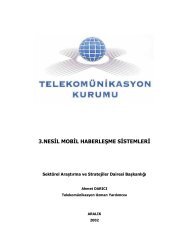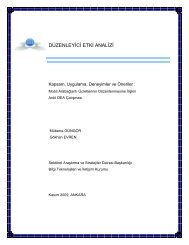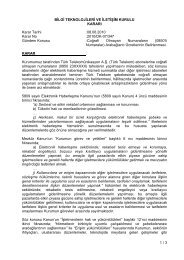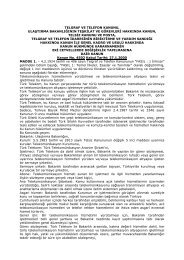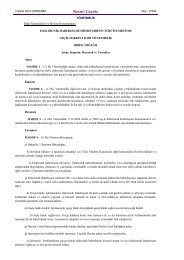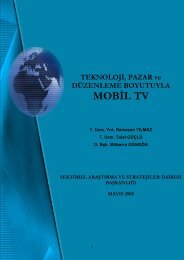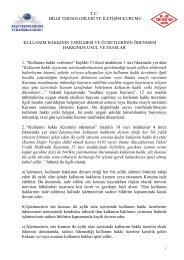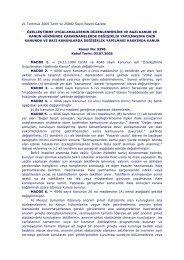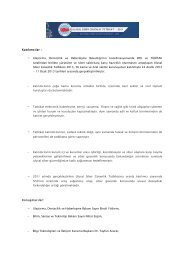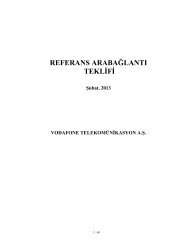city university london school of social sciences convergence of ...
city university london school of social sciences convergence of ...
city university london school of social sciences convergence of ...
You also want an ePaper? Increase the reach of your titles
YUMPU automatically turns print PDFs into web optimized ePapers that Google loves.
Regarding the integration <strong>of</strong> regulatory agencies, OECD states that „minimising thenumber <strong>of</strong> regulators that an enterprise needs to deal with is important in order tominimise regulatory costs, and reduce the potential for uncertainty andinconsistency‟ (OECD:2007 p.49).OECD has proposed a model for reform in order to meet the challenges created by<strong>convergence</strong> that has many similarities with the initiatives <strong>of</strong> EC which will beexplained in the following section. The main lines <strong>of</strong> this model are summarisedbelow: A horizontal approach in which carriage and content have separate regulatoryarrangements should be structured. However it is important to keep in mindthat decisions on some carriage matters can have an effect on cultural and<strong>social</strong> objectives and vice versa. So it may not be possible to speak <strong>of</strong> anabsolute separation in regulation <strong>of</strong> content and carriage. Access <strong>of</strong> consumers to basic services - universal service obligations- shouldbe provided. Cultural diversity should be provided by production <strong>of</strong> domestic programmesand audiovisual services. Plurality <strong>of</strong> voice objective should be achieved by using the capa<strong>city</strong> providedby digital technologies. Objectives <strong>of</strong> plurality and diversity should be achieved by financiallysupporting public broadcasting. More efficient use <strong>of</strong> spectrum should be encouraged in order to achieve<strong>social</strong>ly desirable outcomes. New regulatory framework should be structured taking into account theimportance <strong>of</strong> protection <strong>of</strong> consumers.Regarding the <strong>social</strong> and cultural side <strong>of</strong> <strong>convergence</strong> regulation, OECD states that itis important to assess whether <strong>convergence</strong> requires a change in policies to achieve<strong>social</strong> and cultural objectives in a country and highlights that it may not be optimumto impose common regulations applying to all services. According to OECD, „thedegree <strong>of</strong> influence <strong>of</strong> free to air radio and television may justify a more intrusive29



